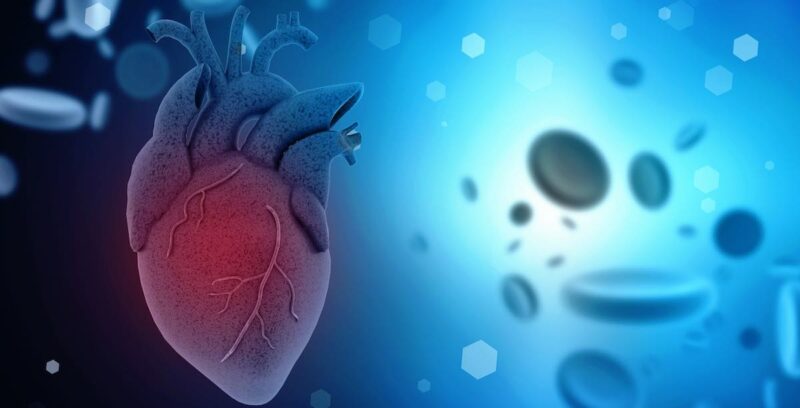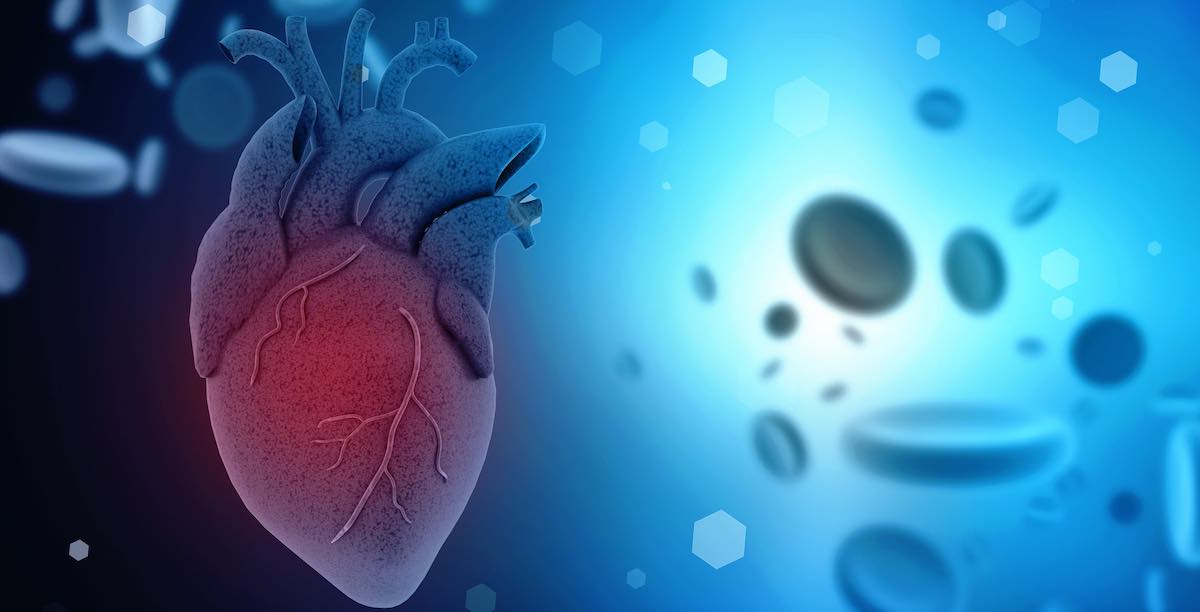Two studies highlight the relationship between heart failure and cancer, showing people with heart failure are more likely to develop cancer, and that statins may reduce that risk. The first study, published in ESC Heart Failure (28 June 2021), found heart failure patients were 76% more likely to develop cancer than those without heart failure; while the second study, published in the European Heart Journal (22 June 2021), found statin use in heart failure patients was associated with a 16% decrease in risk of developing cancer and 26% decrease in risk of dying from that cancer.
Advances in the treatment of heart failure, which saw improvements in five-year survival from 29% in 1970 to 60% in 2009, have been offset by increases in deaths from other causes, such as cancer. Besides shared risk factors, such as diabetes mellitus, smoking, and dyslipidaemia, it has been hypothesized that heart failure is an oncogenic condition. The oncogenic link is thought to be related to neurohormonal activation of tumorigenesis, systemic pathological processes (such as inflammation and oxidative stress), and common genetic predispositions. A number of small studies have suggested heart failure patients have increased incidence of cancer.
In the first study, Mark Luedde (Christian-Albrechts-University of Kiel, Germany), and colleagues, used the German Disease Analyser Database (IQVIA), covering 1,274 general practices, to identify 100,124 patients with heart failure and 100,124 age-matched controls without. No participants, who had an average age of 72.6 years, had cancer at the start of the study.
Results over the 10 year observation period show cancer incidence was 25.7% for people with heart failure versus 16.2% for people without (HR 1.76; P<0.001). For women cancer, incidence was 28.6% for those with heart failure versus 18.8% for those without (HR 1.85%; P<0.001); while for men cancer incidence was 23.2% for those with heart failure versus 13.8% for those without (HR 1.69; P<0.001). The greatest increase in risk was found for cancer of the lip, oral cavity and pharynx (HR 2.10), respiratory organ cancer (HR 1.91), female genital organ cancer (HR 1.86), skin tumours (HR 1.83), lymphoid and haematopoietic tissue cancer (HR 1.77), digestive tract cancer (HR 1.75), breast cancer (HR 1.67), genitourinary urinary tract cancer (HR 1.64) and male genital organ cancer (HR 1.52).
The authors identify the need for intensified tumour screening to be introduced specifically for heart failure patients. “It’s common practice for cancer patients who’ve received heart-damaging drugs to be monitored for heart failure. Conversely, evidence is accumulating to indicate that heart failure patients could benefit from intensive monitoring for cancer development through screening,” says Luedde.
In the second study, between 2003 and 2015 Kai-Hang Yiu, (University of Hong Kong) and Carolyn Lam, (National Heart Centre, Singapore) identified 87,102 patients admitted to hospital with heart failure from the Hong Kong based Clinical Data Analysis Reporting system (CDARS). Further investigation revealed that 36,176 were statin users and 50,926 non-users, with baseline statin use defined as 90 days or more of consistent use before the index date.
Results at a median follow-up of 4.1 years showed that 11,052 subjects were diagnosed with cancers, and that statin use was associated with a 16% lower risk of cancer incidence. The inverse association with risk of cancer was shown to be duration dependent. As compared to short statin use (3 months to <2 years), the adjusted subdistribution hazard ratio (SHR) was 0.99 (95% CI, 0.87-1.13) for 2 to <4 years of use, 0.82 (95% CI, 0.70-0.97) for 4 to <6 years of use, and 0.78 (95% CI, 0.65-0.93) for ≥6 years of use. Furthermore, the 10-year cancer-related mortality was 3.8% among statin users versus 5.2% among non-users (SHR 0.74; 95% CI 0.67-0.81).
“Our study highlights the relationship between heart failure and cancer development, and provides important information regarding the possibility of reducing cancer incidence and related deaths by using statins in these patients,” says Yiu.












